Vietnam is moving from an agricultural past to an industrial present, and life grows faster and busier with each passing year. Yet, the rhythms of the countryside and the city remain strikingly different—in mindset, lifestyle, and standards of living.
1. Life in the Countryside
Around 65% of Vietnam’s population still lives in rural areas, scattered across vast farmland and quiet villages (VTCnews). Here, the air feels calmer, the roads are never crowded, and the pace of life follows the seasons rather than the clock.
Rural communities value close ties—family bonds, neighborly connection, and shared traditions like village festivals or worshiping the village god.
Early rising is a deeply rooted habit. Whether young or old, most wake between 5:00 and 5:30 am, a legacy of agricultural life, when work began at the rooster’s first crow. Sleeping late risks being labeled lazy. And because mornings start early, nights end early—by 9:00 pm, streets are silent, homes dark, and the village wrapped in stillness.
Dinner is eaten before sunset, a habit dating back to the days of kerosene lamps. Even today, many still follow this old rhythm.
Village life also thrives on conversation—and gossip. With little entertainment and ample free time after work, news travels fast, whether or not it’s true. As the saying goes, “It’s not clear in the family, but the neighbors have already known it.”
Respect for elders runs deep. Experience is valued over theory, a mindset shaped by centuries of farming, where the wisdom of the old guided the survival of the community.
For children, studies are lighter than in the cities. Outside of school hours, they play in open fields or tag along to the rice paddies. Their clothes may be simple, but their playground is vast, and their smiles wide.
2. Life in the City
Shaped by industrial growth, Vietnam’s cities pulse with a faster, more hectic rhythm. Yet even here, pace varies—bustling Saigon and Hanoi hum day and night, while smaller cities like Hue or Hoi An move at a gentler tempo.
Hue, for example, holds a special place in the heart of Mr. Thom, founder of Hue Flavor. To him, it strikes the perfect balance—neither as noisy as the big metropolises nor as quiet as the countryside.
In urban neighborhoods, community ties are looser. Connections often form only within a small section of a street or a cluster of houses.
Daily routines differ, too. Young people tend to stay up late and rise late, while many elderly residents still greet the day at dawn, exercising in parks or along tree-lined streets. Here, unlike in rural areas, waking up late doesn’t invite judgment.
Family dynamics are also different. Elders have less influence over work or business decisions; instead, the highest earners often hold the most sway—a reflection of the city’s more pragmatic, income-driven mindset.
For children, city life can feel more restricted. Seen as their parents’ “treasures,” they have less freedom than rural children, with schedules tightly packed. Many spend their days in school, then rush through a quick Vietnamese baguette before heading to evening tutoring sessions.
And whether in the city or the countryside, one sound unites Vietnam—the sudden crackle of the loudspeaker. Sometimes it blares at dawn, jolting you awake: Oh! Morning has arrived.
3. Frequently Asked Questions About Life in Vietnam
3.1. How is the quality of life in Vietnam?
Vietnam is a developing country in Southeast Asia. Despite the challenges of growth, most Vietnamese people consider themselves happy.
According to the 2021 Expat Insider survey, Vietnam ranked among the top 15 countries worldwide for personal happiness out of 59 nations surveyed. However, in areas such as digital infrastructure, health and well-being, and leisure options, Vietnam placed in the lower half of the rankings—bringing down its overall position in the global table.
3.2. How much do Vietnamese people earn?
Income levels vary widely between urban and rural areas. On average, city dwellers earn nearly twice as much as those in the countryside.
The General Statistics Office reported that in 2020, the national average monthly income per person was around 4.2 million VND, a slight decrease from 2019. The highest-earning locations (source: VnExpress) were:
- Binh Duong: 7 million VND/month
- Ho Chi Minh City: 6.6 million VND/month
- Hanoi: 6 million VND/month
3.3. What is the cost of living in Vietnam?
For a family of three in Hanoi or Ho Chi Minh City, living expenses for a modest, middle-class lifestyle average about 15 million VND per month. In smaller cities like Hue or Da Nang, the figure is closer to 10 million VND.
In rural areas, monthly expenses drop to roughly one-third of big-city costs. These estimates assume limited spending on entertainment or travel; a more comfortable, well-rounded lifestyle could require double those amounts.
3.4. Where do the rich live in Vietnam?
The wealthiest residents are concentrated in Ho Chi Minh City and Hanoi, Vietnam’s two largest economic hubs. These cities offer strong infrastructure, business opportunities, and convenient transport links.
Exclusive neighborhoods in Hanoi include: Tay Ho’s million-dollar villas, the Old Quarter, Vinhomes Riverside Long Bien, Vinhomes Green Villas, Vinhomes Metropolis, Ciputra, and The Manor Me Tri.
Prestigious areas in Ho Chi Minh City include: Vinhomes Central Park, Phu My Hung, and Thao Dien.
Such is life in Vietnam—each place with its own rhythms, advantages, and challenges. From the quiet charm of the countryside to the vibrant energy of the cities, every corner holds its own kind of paradise for the people who call it home.
When you travel here, take time to look beyond the tourist sites. Listen to the morning roosters in the villages, watch the park joggers in the cities, and feel the heartbeat of daily life. You may find that these simple moments become your most unforgettable memories of Vietnam.

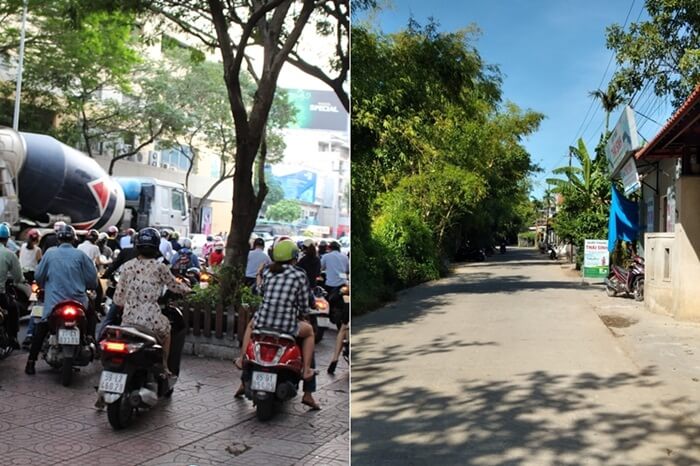
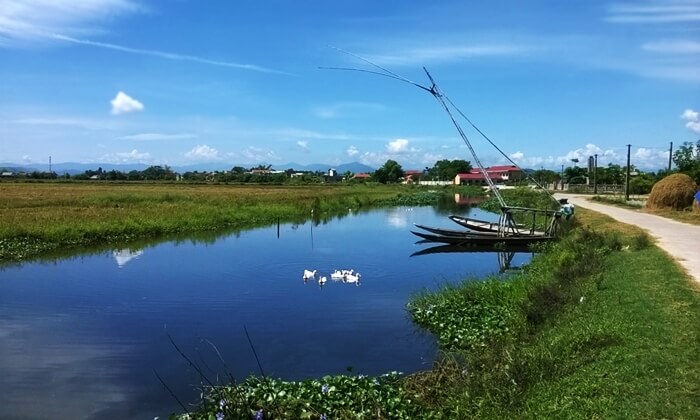
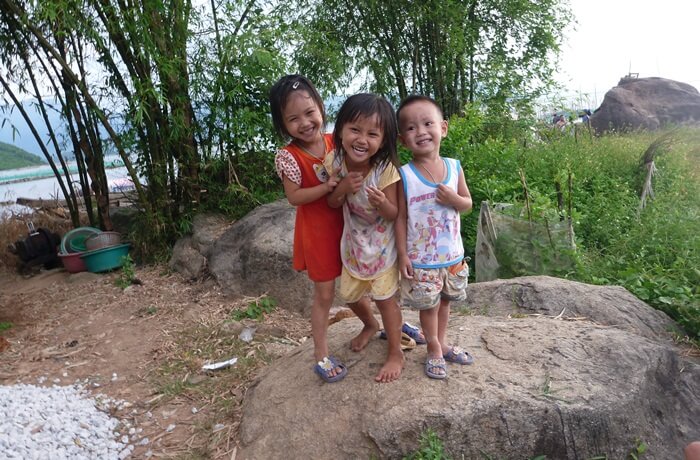
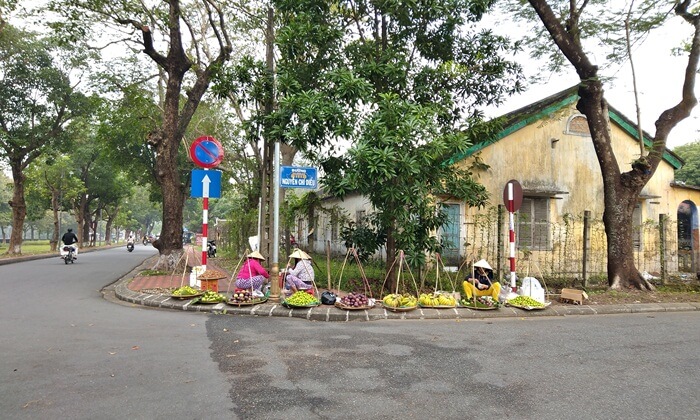


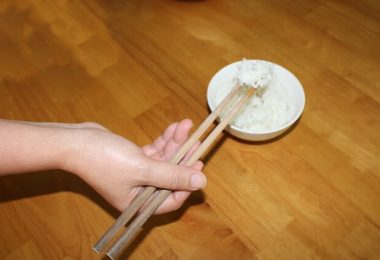
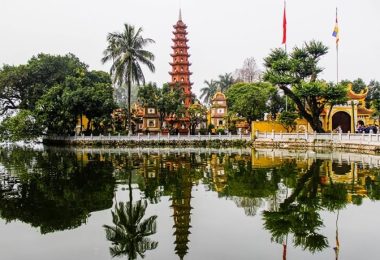
Dear Mr. Thom,
My husband I are friends of yours. Did you work at Silk Sense? We think we met you there in February of 2020. We hope you are well and your family also. We are sad that we have not been able to come to Vietnam because of Covid.
Your insights on Vietnam are very interesting.
I hope you can get the vaccine soon.
Lori and Joe
Hi Lori and Joe,
It is nice to hear from you.
Yes, I was very happy to do the tour with you Feb2019 when you stay at Saigon Morin Hotel in Hue.
Always hope to hear the voice of guests soon!
Thanks,
Thom Ho